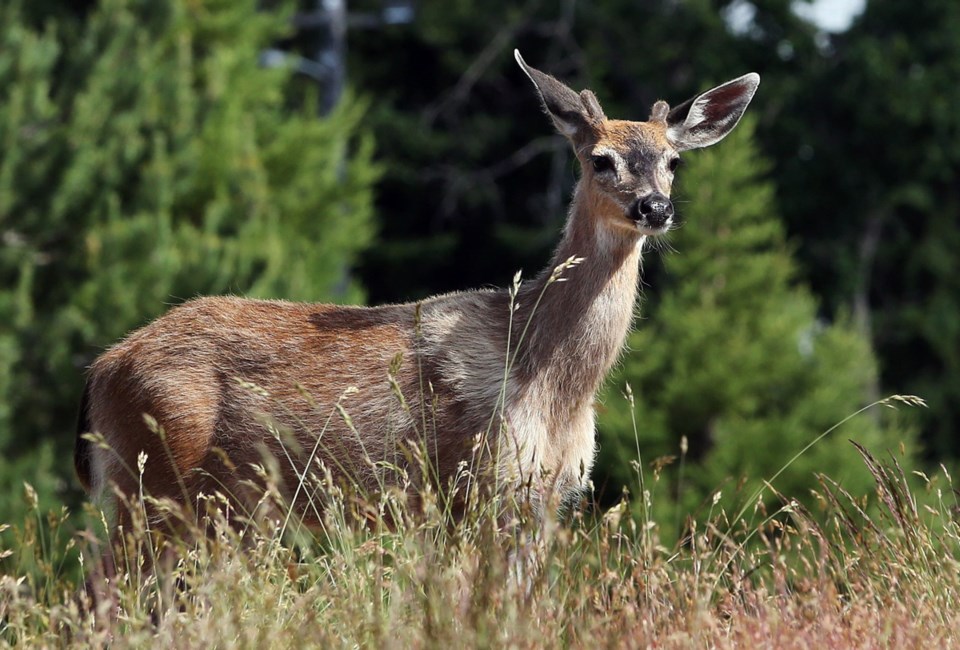Wildlife activists say if Oak Bay moves ahead with its planned deer cull, they will be there to record it.
A mailout delivered to 5,600 Oak Bay and area households last week urges residents to notify DeerSafe Victoria if they see a deer trap.
“What we want to prove is, this is not a humane kill,” said DeerSafe spokeswoman Kelly Carson, adding the group does not plan to interfere with the traps.
“We’re there to observe the kill. We’ll be watching the traps for 24 hours or for as long as they are on the property. I think what we can report back or if we can get footage, I think it will turn peoples’ stomachs and there will be more of a push for non-lethal management.”
Oak Bay’s controversial deer-management initiative includes a cull of up to 25 deer, beginning as early as this month. The municipality has yet to receive a permit from the province for the cull.
Oak Bay Mayor Nils Jensen said that he expects people to respect the law and property rights. “I assume and expect that protesters will be respectful not only to property rights but to the animals and also act lawfully,” Jensen said.
Deer caught in the traps are not upset about being trapped, he said. “What upsets them are people who approach it. So if a protester were to approach these traps, it would have an adverse impact on the deer and we don’t want that to happen.”
Oak Bay’s deer program is being done in conjunction with a $150,000 Capital Regional District deer management pilot project.
The provincial permit requires a conflict-reduction program, deer-vehicle collision mitigation, public education plans and a deer count prior to any cull, all of which have been completed.
The cull came about in response to complaints from residents that deer were destroying gardens and shrubs, and posing a danger to people and pets.
“We’re doing this for public safety. We’re doing this for public health and also for the animal’s health,” Jensen said. “To have approximately 40 animals a year impaled on fences or killed by cars is not humane. This [the cull] is a humane program and it has been viewed as that by the B.C. wildlife veterinary.”
Jensen said 30,000 deer a year are killed in B.C. during the 75-day hunting season. “We are proposing a mere 25 in an urban environment for the safety of our public.”
Kristy Kilpatrick, who represents another group of residents concerned about the proposed cull, said the process leading up to the permit application has been flawed and public consultation inadequate.
She said the municipality’s deer count was unscientific and mitigation efforts insufficient, and that the eventual cull of 25 deer is not expected to have any meaningful impact.
“I think it would make very good sense to, instead of proceeding with the cull, start to direct whatever funds they have to putting other steps you can do to mitigate deer-human conflict [such as] public education and outreach, signage, reducing the speed limit and educating people,” she said.



